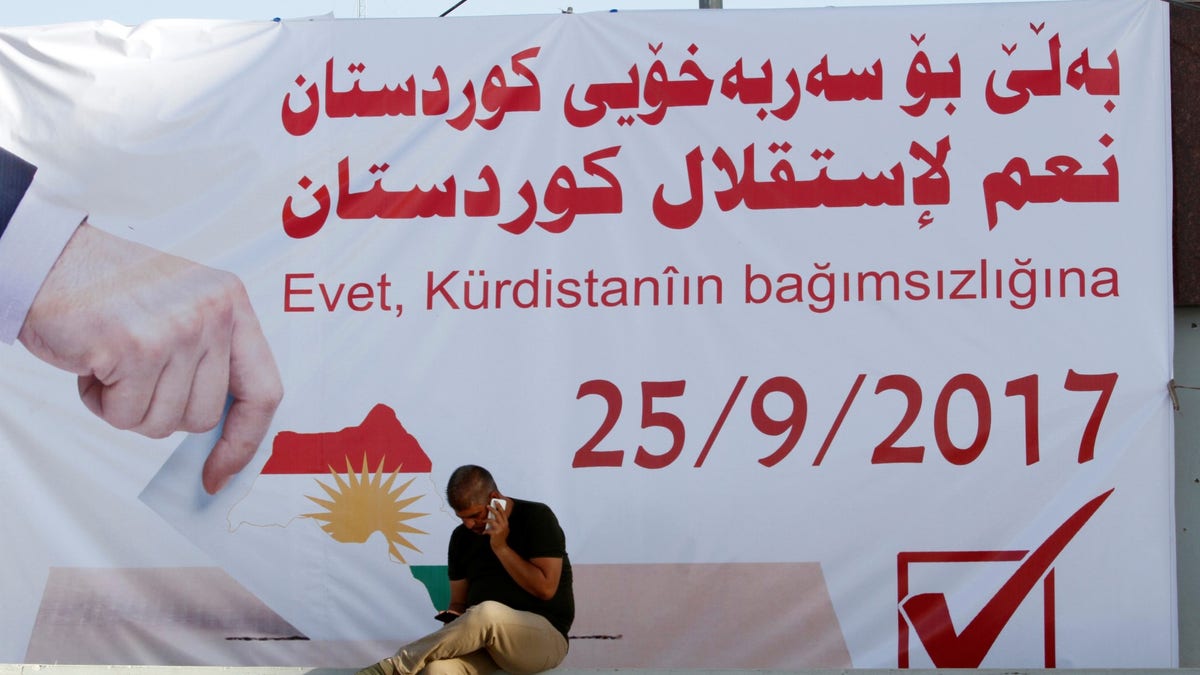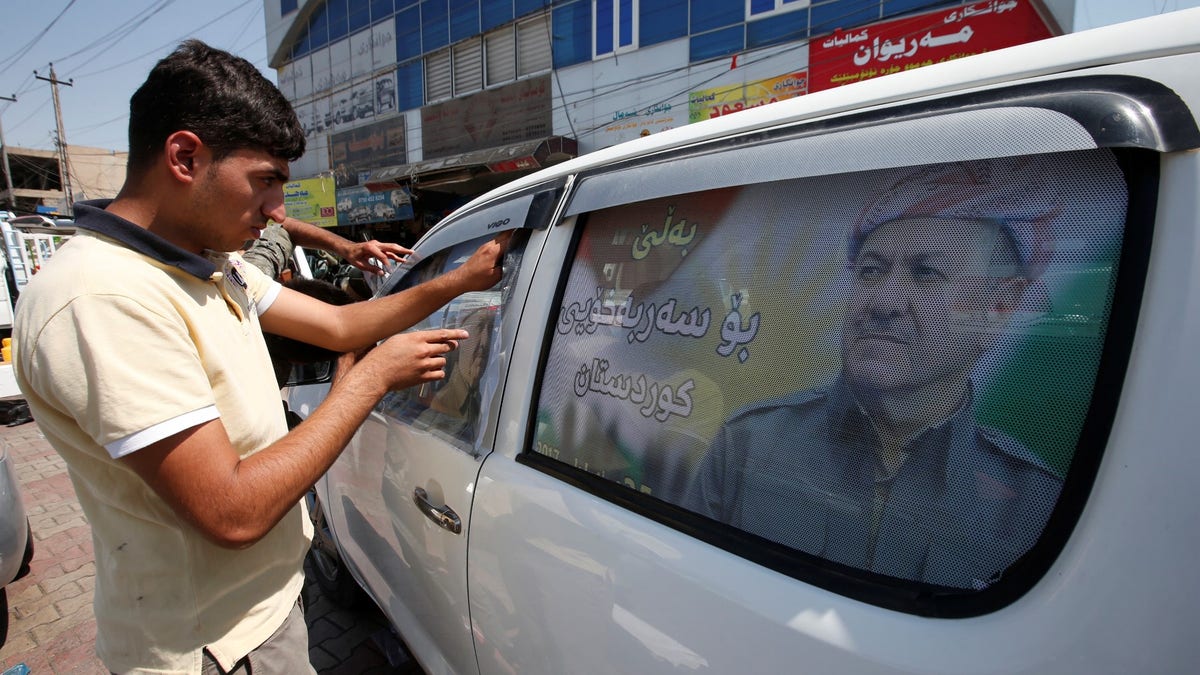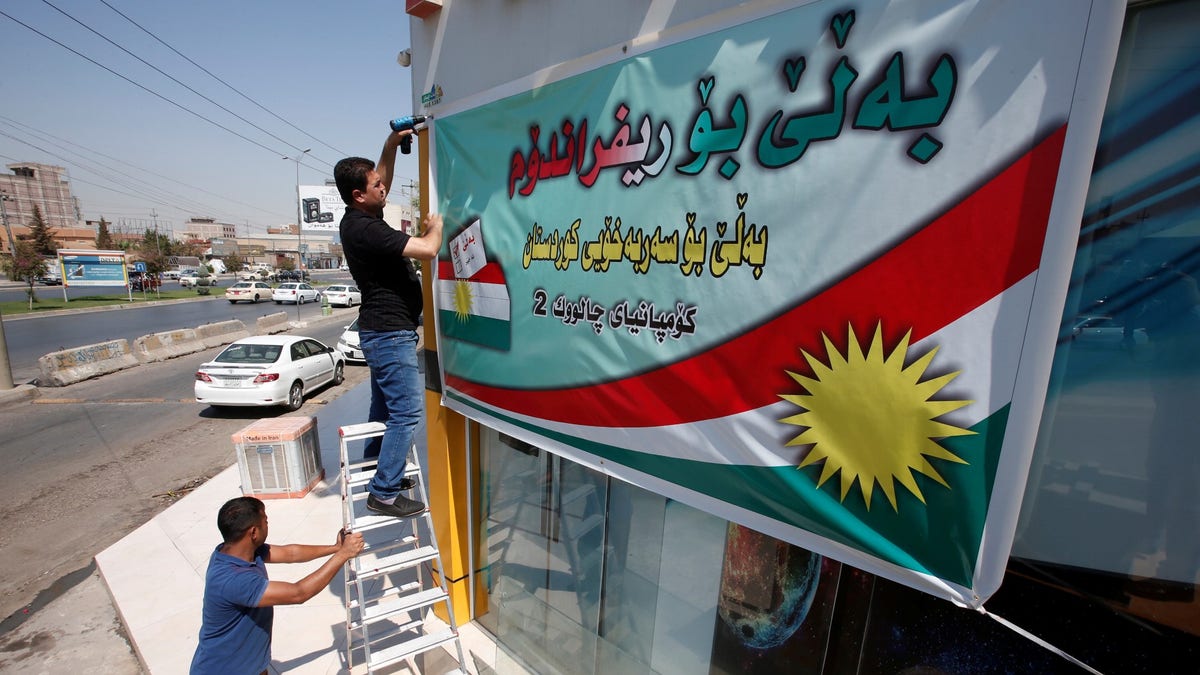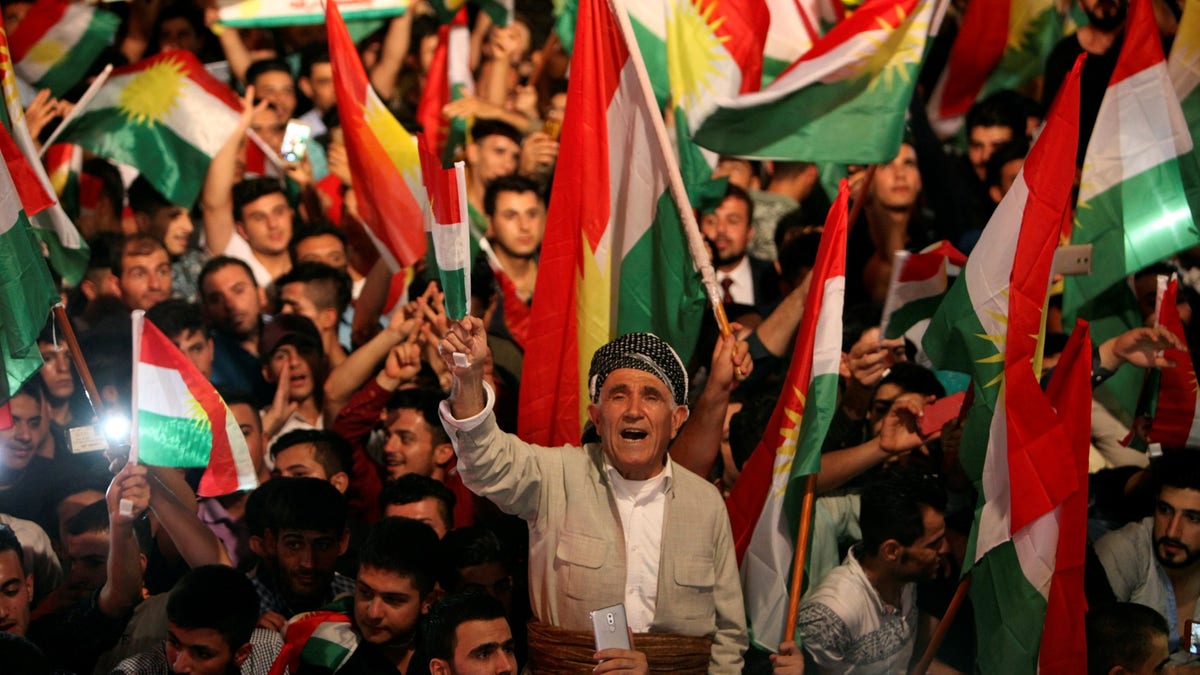
As an Iraqi nationalist, I am both grateful to America for its help indefeating the Islamic State (IS) terrorists in my country and for helping us confront Iran’s takeover of our political system.
Yet as the leader of the Iraqi National Project (INP), a multi-sectarian political party dedicated to the preservation of Iraq, and as someone who has lost 80 members of my family on the battlefield, I am deeply concerned that America is failing to help us through another potentially devastating change.
This would be the Kurdish independence referendum that is scheduled for September 25th.

A Kurdish man decorates a car with a poster bearing the image of Iraq's Kurdistan region's President Massoud Barzani, urging people to vote in the September 25th independence referendum, in Erbil, Iraq September 5, 2017. (REUTERS/Azad Lashkari)
My party is inclusive, with Sunni, Shiite, Kurdish, and Yazidi Iraqi members participating. We want Iraq to stay whole and do not want full-fledged Kurdish independence declared in defiance of the rest of Iraq. Yet we also do not want the Kurdish people, who have suffered deeply at the hands of previous Iraqi governments, to have their political demands continually ignored.
In Iraq, if one doesn’t get the politics right, fighting is sure to be just around the corner. That is what happened when America abruptly left in 2011, handing over our country to a sectarian government. The results have been devastatingly clear: Iraq’s Sunnis were left alienated by the central government and the conditions for the return of terrorists like IS to our country were ripe.
The same can now be said about the Kurds. If the Kurdish Regional Government’s (KRG) demands – such as oil revenue sharing, the status of security forces, and Kurdish institutional autonomy – are ignored and the central government’s only policy is to either threaten them to drop their referendum or punish them if it takes place, then it will be a disaster for Iraq.

A Kurdish man hangs up a banner, urging people to vote in the September 25th independence referendum, in Erbil, Iraq September 5, 2017. (REUTERS/Azad Lashkari)
It is unfair to the Kurds to expect them to magically stop having a desire to be independent. But the KRG also sees value in being part of Iraq. Yet the central government in Baghdad appears incapable of getting the politics right. The United States needs to step in, but unfortunately, only appears to be taking the central government’s side in this dispute.
Americans have lost too many lives fighting in Iraq for political failure at this critical moment. And Iraqi politicians owe the United States their best efforts at political reconciliation, not brinksmanship. Therefore, the United States must work with the KRG and the central government to urgently create a committee that can address all the issues between them that must be resolved.
America and the international community must mediate, rather than serve as Baghdad’s lawyer against the Kurds.

Kurdish people celebrate to show their support for the upcoming September 25th independence referendum in Erbil, Iraq September 8, 2017. (REUTERS/Azad Lashkari)
Ultimately, it is in America’s national security interest to support both Kurdish aspirations and a unified Iraq. These are not contradictory objectives. If America does engage, three major objectives related to this potentially explosive situation must drive the conversation.
First, the Iraqi government must begin to truly listen to the needs and aspirations of the Kurds – as well as the Iraqi people – and change the way it is dealing with this referendum. Currently it is exacerbating the situation and almost daring the KRG to go forward with this challenging referendum, as the Kurds see no positive alternative being offered to them.
Second, those who are fighting the terrorists must believe that they will be better off after the terrorists are gone. By telling the Kurds – who are highly effective American allies against IS – that America is putting their political aspirations on the back burner, America is offending its allies for little gain. The same can be said for how the Iraqi government engages Iraq’s Sunnis – or doesn’t – in helping to chart a peaceful path forward for my country. Kurds and Sunnis alike must be treated by the central government as part of the solution to Iraq’s problems. Currently we are not.
Third, America needs to do more to press the Iraqi central government to listen to the opposition, shun sectarianism and establish a balanced presence in the government and security forces by recruiting people from all components of Iraqi society. National reconciliation should be advanced, yet the central government is not listening to the people with whom reconciliation must be made to achieve stability in my country.
This is a pivotal moment for the United States in Iraq. The Kurdish referendum is a test that neither Iraq nor America can afford to fail. But we are heading towards a highly visible cliff on September 25th – and if America fails to step in diplomatically to help address both Kurdish political grievances and central government concerns, rather than just toe the Baghdad line – then we will all go over it, with the only winners being the Islamic State and Iran.
The Iraqi and American people have suffered long enough. Let’s not open a new front of instability in Iraq.
